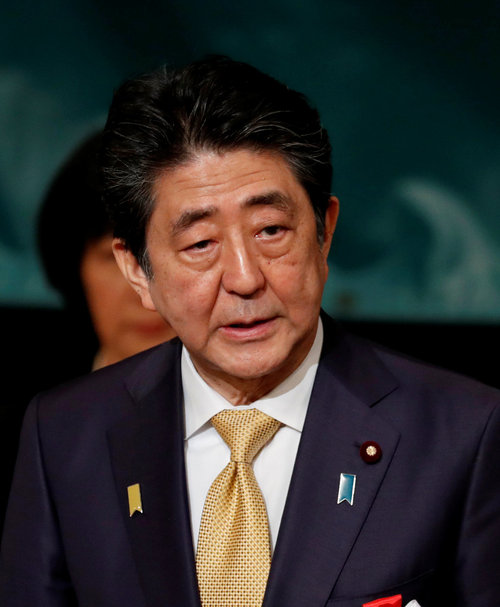 |
|
Japanese Prime Minister Shinzo Abe
|
Abe again refers to S. Korea diverting chemicals to N. Korea via “inappropriate” trade
A Japanese government official cited the possibility of exported raw materials being diverted for use in producing toxic sarin gas as a reason for controls of exports on semiconductor materials, the NHK network reported. On July 9, NHK quoted an unnamed Japanese official as explaining that the chief reason for Tokyo’s strong export controls on South Korea stemmed from the repeated occurrence of instances judged to be inappropriate in security terms. “Despite the fact that these raw materials [subjected to controls on exportation to South Korea] could be diverted for [the production] of the chemical weapon sarin, it has become a routine occurrence for certain South Korean companies to press their Japanese suppliers to rush their supplies,” NHK quoted the official as saying. According to the network, the official did not provide further explanation. In its report, NHK said that the Japanese Ministry of Economy, Trade and Industry (METI) had “demanded improvements to this issue after listening to Japanese businesses and conducting inspection visits,” but that “South Korean authorities have not taken appropriate action toward the South Korea businesses owing to an inadequate trade management system.” “The decision to pursue the [export control measures] was based on the conclusion that if the situation persists, it becomes impossible to rule out the risk of goods that could be diverted for military purposes passing from South Korea to another country that is developing weapons of mass destruction,” the report said. While declaring its measures imposing controls on semiconductor materials and other exports on July 1, the Japanese government cited “damage to the relationship of trust” between the two sides. But after a backlash even in Japan from critics deeming the measures to be essentially retaliation for South Korean Supreme Court rulings awarding compensation for forced labor mobilization, Tokyo is attempting to sidestep the charges by citing “security” reasons without providing concrete explanations. Remarks made by Japanese Prime Minister Shinzo Abe on July 7 seemed to suggest that the retaliatory measures were related to North Korea issues. “South Korea has said that it is ‘upholding sanctions with sanctions [against North Korea]’ and ‘properly managing trade [with regard to North Korea],’” Abe said at the time. “[Yet] it has become apparent that it is not upholding its international promise regarding the conscripted worker issue. It stands to reason that we would anticipate it would not uphold [its promises] in terms of trade management either,” he continued. By Cho Ki-weon, Tokyo correspondent Please direct comments or questions to [english@hani.co.kr]





